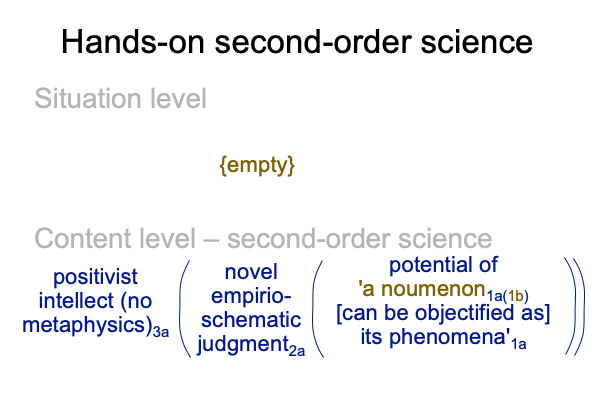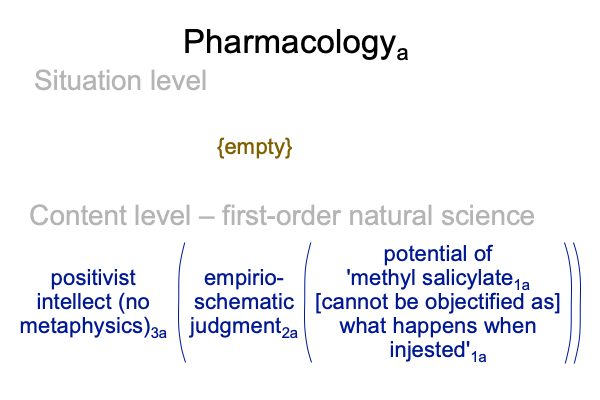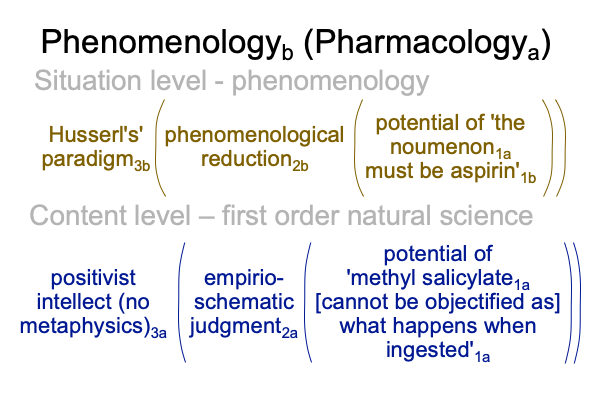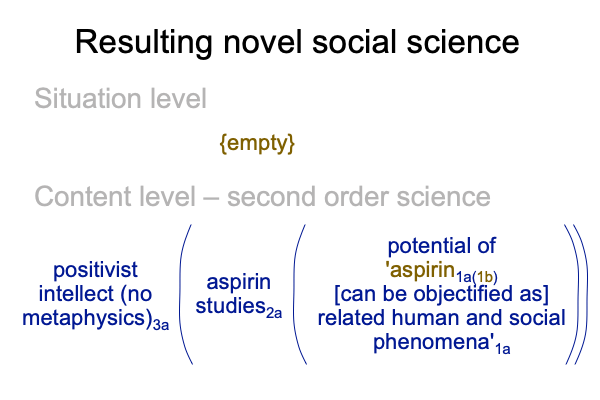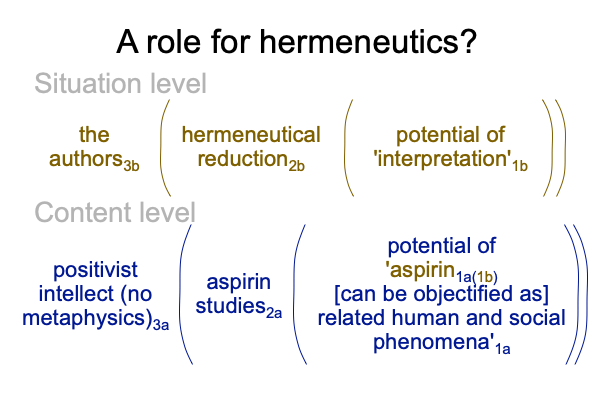Looking at John Perez Vargas, Johan Nieto Bravo and Juan Santamaria Rodriguez’s Essay (2020) “Hermeneutics and Phenomenology in… Social Sciences Research” (Part 12 of 18)
0040 To date, one reverie and three commentaries, listed in the first blog in this series, propose propositions that ought to be tested.
Vargas Perez, Nieto Bravo and Santamaria Rodriguez, in the article entitled, “Hermeneutics and Phenomenology in Human and Social Science Research”, provide material to test the arguments.
0041 Three tests have been considered.
0042 One, why is hermeneutics neglected in phenomenological inquiry?
The answer is that both hermeneutics and phenomenology are able to virtually situate natural (or “first-order”) science. But, hermeneutics is disallowed on the basis of the rule of the positivist intellect, outlawing metaphysics.
0043 Two, what is the latent dilemma between hermeneutics and phenomenology?
The answer is that the situation-level normal context of Husserl’s project3b elbows out the normal context of hermeneutics3a. Such is the logic of normal contexts. The potential underlying Husserl’s paradigm3b is a return1b to the thing itself1a. This return may be formulated as what the noumenon1a must be1b, (that is, the noumenon1b).
In contrast, the potential underlying hermeneutics3b is interpretation1b.
0044 Three, what is the subject matter of phenomenology?
The answer?
Phenomenological reduction2b elucidates a subjective being1b, what the noumenon1a must be1b, capable of serving as an intersubjective being1b. Intersubjective beings1b are curious creatures, since they simultaneously appeal to a suprasubjective perspective-level realm (a God’s eye view) and a consensus-driven content-level (a human’s eye view). Thus, an intersubjective being1b may appear to be mind independent, despite its mind dependence.
Phenomenological reduction2b succeeds when its noumenon1b is regarded as mind independent and enters the slot for the noumenon1a, thereby creating novel conditions where phenomena1a can objectify their noumenon1a(1b). A second-order social empirio-schematic inquiry2a follows.
0045 Once a social science takes off with a community of inquirers3a, the noumenon1a(1b) displays a life of its own. A new Positivist judgment unfolds. Husserl’s project is no longer capable of virtually situating this particular Positivist’s judgment.
How so?
Why is phenomenology3b needed when a noumenon1a(1b) [can be objectified as] its phenomena1a?
